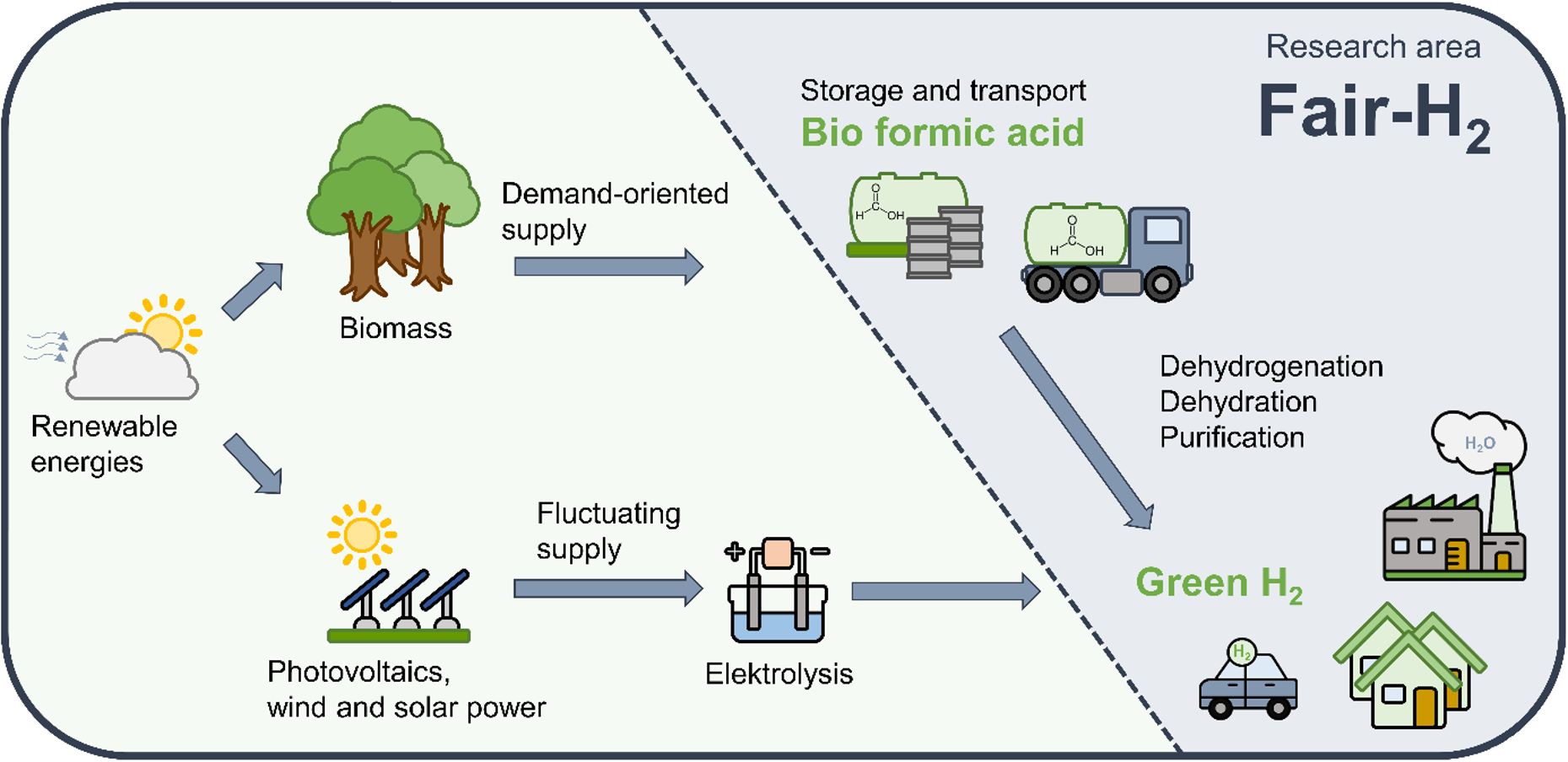The BMFTR project Fair-H2 aims to develop and scientifically evaluate a novel method for the production of green hydrogen from waste biomass. The aim is to achieve maximum efficiency and sustainability through detailed investigation and optimization of the process steps. The experimental results from the respective project areas are extended by process simulations and sensitivity analyses in order to estimate the effects on the overall efficiency of the process and to design the apparatus and heat circuits accordingly.
The economic and environmental assessment of the process is carried out by analyzing the OPEX and CAPEX costs as well as a life cycle analysis that considers potential environmental impacts.
Our new production route already shows promising prospects, particularly for decentralized applications. By using waste biomass, regional agricultural cooperatives could efficiently use the hydrogen they produce for their own energy supply or feed it into cross-regional H2 networks. The combination of different production methods also enables a demand-oriented production profile, which is particularly important in the context of the energy transition.
As part of our research, we are working intensively on developing and analyzing various scenarios for integration of the new production route into existing processes and incorporation into a future hydrogen economy.

